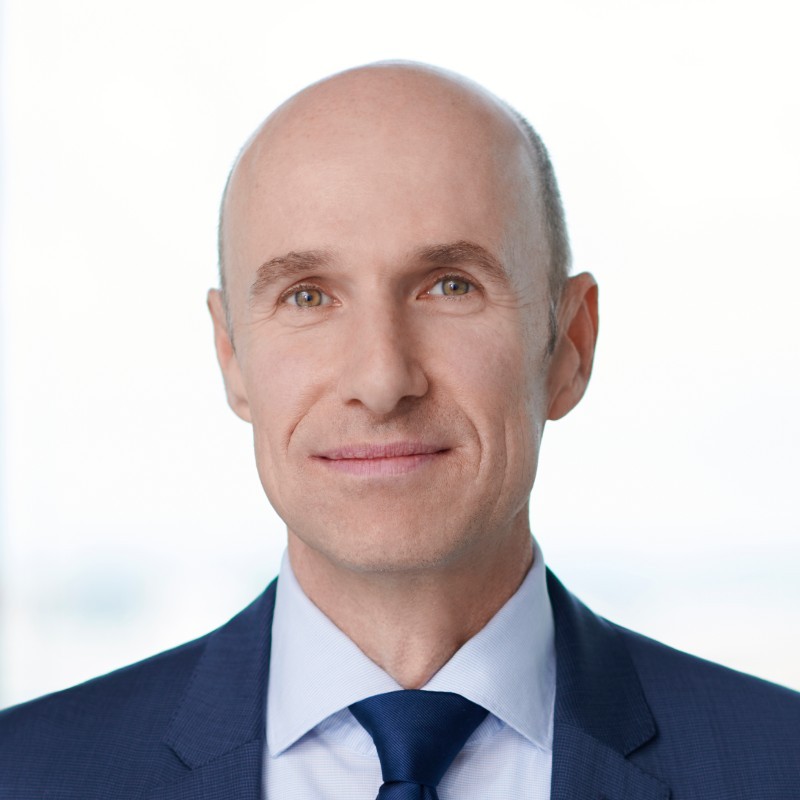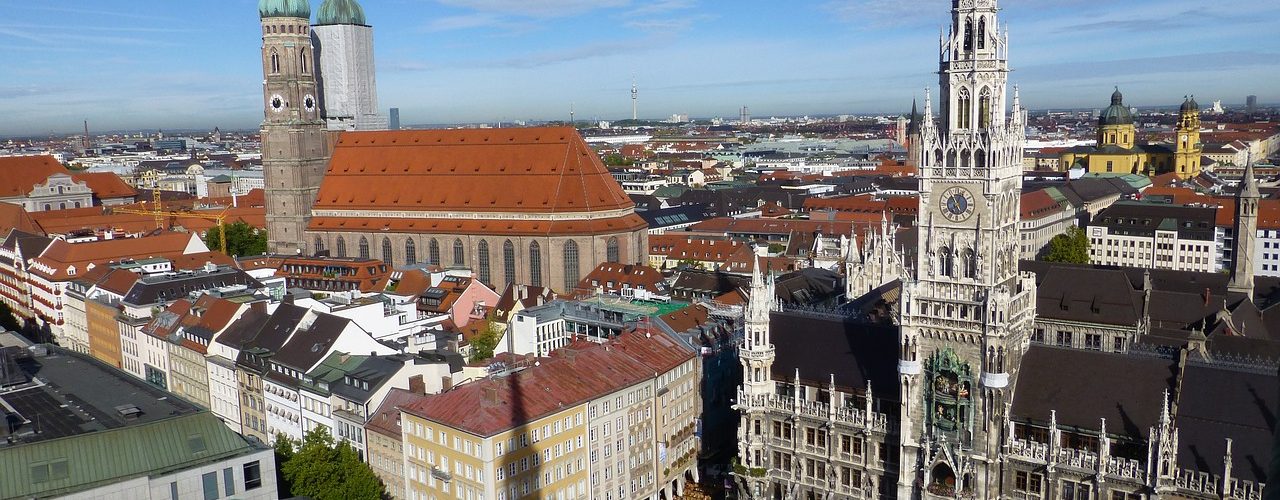Fund boutiques, medium-sized companies, US real estate, infrastructure investments – Markus Hill spoke for FONDSBOUTIQUEN.DE with Martin Krause, BVT Holding, about the current challenges for a niche player in this segment. Topics such as ESG, renewable energies, due diligence, and the pleasure of exchanging professional ideas (“Real Estate, Alternative Investments & ESG”) were addressed as much as racing bikes and the Alps.
Hill: You describe your company as a niche player, what do you mean by that?

Krause: As a medium-sized company with short decision-making paths, we offer our investors niche products such as participation in U.S. project developments of Class A apartment complexes, which investors generally cannot implement themselves, but which enrich existing portfolios. In this respect, I would describe us as a fund or investment boutique where investors get “special” solutions. In addition to our current range of funds, such as a Luxembourg SICAV-RAIF in the Residential USA segment for institutional investors, our strength lies in being able to “tailor” individual solutions to fit exactly. In other words, BVT stands for flexibility coupled with professional expertise. This also includes our ability to respond to the individual reporting requirements and wishes of institutional investors.
Hill: As a medium-sized company, you are also active in various “niches”. What additional fields does BVT cover?
Krause: Investing money where it works productively: In 1976, the BVT Group was founded by Harald von Scharfenberg – and his founding idea remains unchanged today. Investments in tangible assets play a very important role in this. With over 45 years of management and structuring experience in real asset investments and a total investment volume of over 7.7 billion euros, BVT is one of the most experienced houses on the market. From the very beginning, i.e. since 1976, the focus has been on US real estate – and for the last 20 years, we have been concentrating on the US apartment market. Over the years, we have added German real estate, energy and infrastructure, private equity, and portfolio concepts. Particularly in the current environment of discussions about renewable energies, CO2 reduction, and ESG, I am happy to refer to BVT’s pioneering role in the energy and infrastructure segment. It has been active in this field since 1988 and was the first issuing house in Germany to launch a mutual fund investing in wind power plants. So for us, renewable energy generation is not a trendy topic that we are now jumping on; as a pioneer in this field, we focused on sustainable energy generation at a very early stage. BVT founder Harald von Scharfenberg experienced the power and potential of natural energy as a child. On the family’s ancestral home, there was a mill that, like many large estates at the time, was powered by water. Although located far from industrial centers, the family decided as early as 1896 to use the mill’s surplus energy to electrify the estate. Thus, for our company founder, there was a predefined path to combine ecology and economy in a new asset class.
BVT’s long-standing commitment to developing renewable and sustainable energy projects was consistently continued in 2019 with the decision by BVT Kapitalverwaltungsgesellschaft derigo to sign the international PRI initiative. In doing so, it acknowledges and commits to taking ESG criteria into account at the company level and in the investment process and, as a result, to responsible and sustainable investing in selected asset classes. About your question “What does BVT do?” I could, of course, go much further – a current and, in my opinion, very convincing example of our conceptual activities could recently be gleaned from the press: EnBW Energie Baden-Württemberg AG sold a minority share of 24.95 percent in its subsidiary, the transmission system operator TransnetBW, to Südwest Konsortium Holding GmbH. The consortium, led by SV SparkassenVersicherung, includes more than 30 savings banks, banks, insurance companies, and corporations from Baden-Württemberg. In their press release, the partners involved point out: “The investment of the investors of Südwest Konsortium is managed by the capital management company Derigo GmbH & Co. KG, which is experienced in the infrastructure sector.
Hill: What were you working on more intensively at the moment?
Krause: As already described, one of our core areas is US real estate. Here we are permanently challenged, be it in examining and connecting new projects, the support of the leasing phase, or the subsequent property sale. These processes are very labor-intensive, especially for our US colleagues, but as a rule, we – and above all our investors – are rewarded with good results in the end. At the moment, we are noticing that many institutional and private investors are scrutinizing their portfolio composition in the wake of geopolitical and economic developments and the increasingly present effects of climate change. Often, this develops into the realization that a greater focus on renewable energy and sustainable infrastructure is necessary and profitable. Our existing investors are also coming forward and actively asking for further investment opportunities, for example in wind or photovoltaic parks. In parallel, energy storage systems are moving into the spotlight. The question of the economic viability of storage is still complicated at present, but it can be said that investments in storage are particularly profitable in combination with wind and PV parks. The advancing electrification leads to a broadening of the possible spectrum for infrastructure investors. Therefore, it is probably not surprising that, based on our decades of experience, we are currently in the process of preparing a renewable energy fund that combines precisely these different aspects. According to our planning, this fund should be available to institutional investors in the fourth quarter.
Hill What to look for in due diligence in the U.S. real estate segment?
Krause: In our core area of U.S. real estate, BVT operates directly on-site, and has done so since the 1970s – the purchase or sale, asset management, and tax service for investors is carried out in our offices in Atlanta and Boston. We pay close attention to the budgeting and acquisition process. Before purchasing any property, we take a close look at the micro and macro locations as well as comparable properties. Based on many years of experience and our expertise in the U.S. market, our staff in the U.S. prepares a property-specific market study. In addition, we have the rental rates verified by a specialized US service provider. The developers’ construction budgets are reviewed by an external engineering company. Only when all parameters of a potential project are correct and the BVT-internal investment committee has given its approval, the development is connected. In summary, BVT maintains a tight control system throughout the development process and later in the investment and sales process.
Hill: What other topics are you currently working on?
Krause: In addition to the operational issues, we are currently using the time for many discussions with investors. Due to the change in the interest rate situation, investors often have to rethink their portfolios to get back into the investment process at the end of 2023 or the beginning of 2024. That’s why it’s important to exchange ideas, to keep an ear to the ground to know investors’ requirements and wishes on the one hand – but also to be able to give investors insight into BVT’s product planning on the other. That’s why we also regularly seek out relevant institutional investor conferences – these events are ideal platforms for mutual exchange. Our joint podcast discussion with Martin Stoß in May this year as part of the investor study “Real Estate, Alternative Investments & ESG” and you, Alexander Scholz (TELOS), and Sebastian Thürmer (AREAS) are also among these formats for exchanging ideas. We were happy to support this investor study this year and are already looking forward to the publication of this conversation soon. As I have seen, you will also discuss the study results in short form as one of the various topics at the “P5 The Property Kongress” with Dr. Dominik Benner and other panelists on July 7 in Frankfurt am Main, perhaps the topic of internationalization of real estate investment will also be briefly addressed there. According to the study, institutional investors are positioning themselves more strongly here, and we are following this trend with great interest.
Hill: What do you do when you’re not dealing with investments?
Krause: As much fun as work is, I think it’s important to have a balance that always gives me new energy. For me, this means outdoor activities, in addition to my family. Perhaps surprisingly for some, I can relax best during sporting activities – which can also be strenuous at times. I love to ride my racing bike in the Bavarian foothills of the Alps or run one or another (really) longer distance.
Hill: Thank you very much for talking to us.
Martin Krause, is Managing Director of BVT consulting, management, and trust company for international asset investments mbH. He is responsible for institutional clients.
BVT-HOLDING: www.bvt.de

One thought on “FUND BOUTIQUES & PRIVATE LABEL FONDS: US real estate, infrastructure investments, alternative investments, ESG & racing bikes (INTERVIEW – Martin Krause, BVT Holding)”